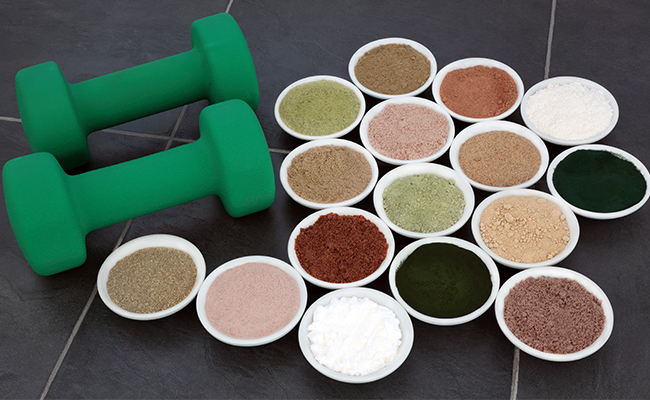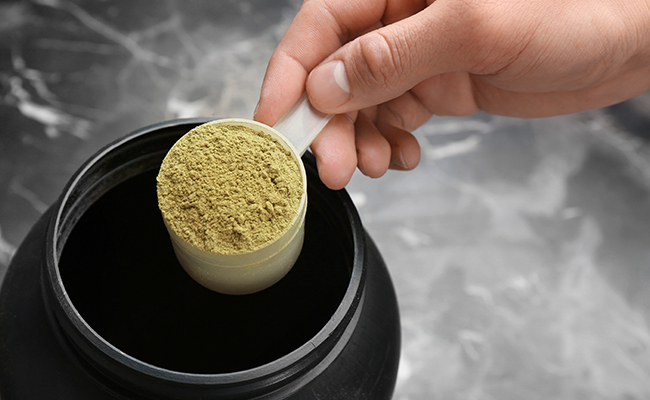What Is Whey Protein? The Ultimate Guide To Whey Protein Powder
If you are new to the fitness scene, you may be asking yourself, what is whey protein? The building blocks within proteins differ from each other. So, all proteins are never equal. Whey, a typical form of protein is known to be better than others. Whey protein powder is made up of a wide variety of amino acids as such; they are absorbed quickly into the body (1). Whey protein powder has been confirmed by various studies to help in muscle development, increase strength and to cut down a high amount of body fat (2). Whey is more than a typical protein. It is made up of many other nutrients with potential biological effects in the body.
Whey protein powder makes a list as one of the most studied food supplement across the world. This article is detailed enough to give you necessary information about whey protein power — the definition of Whey Protein Powder, its functionality and the mechanism through which whey protein powder can help an individual to achieve health and fitness target.
What is Whey Protein?
Whey protein is a term used to describe the combination of different proteins which are isolated from whey. Whey on its own is the liquid component of milk which dissociates during the production of cheese. Milk is made primarily of two types of protein; 80% of casein and 20% of whey. The liquid portion of milk is where whey is found. During the production of cheese, the fatty components of milk coagulate while the whey component of the milk is extracted as a by-product (3).
Have you ever opened a can or bottle of yogurt to see the liquid portion floating? If yes, that volatile liquid is whey. Initially, cheese makers usually disposed of it until research proved the volatile liquid to be whey and of high economic value (4). The moment whey is separated from the whole milk during cheese production; it is subjected to different steps of processing which turns out to be what everyone recognizes and calls whey protein (a white powder which is added to meals replacements, shakes and protein bars (5).
Alone, whey protein is not tasteful. This is why flavored powder such as vanilla, strawberry, and chocolate are usually added to enhance its taste. When buying whey products, it is advisable to read the list of ingredients, reasons being that some whey products contain some unhealthy additives such as processed sugar. If your target is to add about 25-50g of protein to your daily food intake, enriching your meal with whey protein powder can help you achieve this.
Are you a fitness enthusiast or you need to lose some weight? Possibly, your meals may be lacking in protein, taking whey protein can be of great help. Flavored whey protein powder can be used to enhance the taste of healthy food recipes such as smoothies. An individual with lactose intolerance as well as those who are allergic to whey is advised to stay away from whey although it well tolerated by most people (6).
Do You Wish To Boost Your BCAA and Protein Intake? Whey Protein Can Help You
The primary building blocks of the human body are proteins. Proteins help to build different parts of the body such as; the skin, organs, hormones, neurotransmitters, tendons, enzymes, other molecules and components of the body. The contractile elements in the muscles are also made up of proteins. Amino acids (smaller molecules tied to each other in the form of beads arranged in a thread) are the building blocks of proteins. The food we eat helps to provide some amino acids to our body while the body produces other forms of amino acids. The essential amino acids are those derived from the food we eat.
Some proteins supply the body with the nine essential amino acids, and whey protein powder is one of such. Whey protein is also known to have a high amount of essential branched-chain amino acids (BCAA) such as leucine and cysteine (7). Research has shown that leucine is the most growth-promoting (anabolic) amino acid which cysteine is helpful in boosting the amount of glutathione which is a cellular antioxidant (8, 9). In human, whey protein is found to lay a vital role in the stimulation of growth. Facts have it that breast milk contains about 60% of whey compared to cow milk which has only about 20% whey content (10).
Types of Whey Protein: Hydrolysate, Concentrate and Isolate
Many popular types of whey protein exist, but the striking difference among them all is the methods employed in processing them.
- Hydrolysate Whey Protein: This type of whey protein is also called hydrolyzed whey, and it is usually digested first and gets absorbed into the body faster than others. Hydrolyzed whey protein can raise the level of insulin to about 28-43% which is higher than what the isolate whey protein can (11).
- Concentrate Whey Protein: This is made up of about 70-80% of protein, and it contains some amount of fat, lactose (milk sugar) and its flavor is the best.
- Isolate Whey Protein: This type of whey protein includes more than 90% of protein with the lower amount of fat and lactose. It is not rich in beneficial nutrients like the concentrate whey protein.
Among the three categories of whey protein, concentrate whey proteins remains the best alternative. Concentrate whey protein usually retains all its beneficial nutrients, and it is the cheapest. Probably, the lactose and fat content of concentrate whey protein contributes to its pleasant taste, and this makes many people choose it over the rest for people who are having a problem tolerating concentrate whey protein with low fat and carbs, hydrolyzed and isolate whey protein can serve as the best choice. Don’t assume that because concentrate whey protein seems to be the most popular, several research and studies have had also examined isolate whey protein.
Effect of Whey Supplementation on Strength and Muscle Mass
Increasing strength and muscle mass are the significant uses of whey protein supplements. Among athletes, fitness enthusiast, bodybuilders and those who hope to enhance their fitness performance, whey protein is a top-rated product.
Whey protein improves strength and muscle mass through:
- Rapid absorption: Compared to other types of proteins, whey proteins tend to be absorbed into the body faster (15).
- Triggers Hormones secretion: Anabolic hormones such as insulin which helps in the stimulation of muscle growth are rapidly released by whey protein (12).
- High Leucine Content: Whey protein contains a high amount of the amino acid leucine, and leucine is known to stimulate the synthesis of muscle protein at the genetic and molecular levels (13, 14).
- Provision of body building blocks: Whey proteins provide amino acids which are the primary building blocks of protein in the body, and this leads to increased muscular growth.
When consumed before, during or post workout, whey proteins have been confirmed to increase muscular growth. Post workout periods are the peak moments when muscle protein synthesis takes place (16, 17, 18, 19). Be it as it may, according to current research, the most important factor responsible for muscle growth is the total amount of protein intake on a daily basis (20). Whey protein has been found to have a better performance when compared to other protein sources such as soy (21, 22).
By comparison, whey and casein seem to share equal performance. Casein is found to have a longer period of muscle stimulation compared to whey whose effect is temporary, but their new muscle-stimulating effects are similar (23, 24, 25, 26, 27). Bear this in mind that, supplementing your meal with whey especially when your meal wasn’t lacking in protein content might not give you a significant result. In a study carried out on older adults who have enough protein intake in their meals and are into resistance training, no significant difference in muscle growth was observed after supplementing their meals with carbohydrates or whey protein for 12 weeks (28).
From the above result, the perception that whey’s contributes to the strength and muscle growth remains unconfirmed and such results usually vary from one individual to the other. Are you already eating enough fish, egg, meat and other dairy products? Adding whey to your meal may give just a minimal benefit.
Whey Protein May Enhance Weight Loss and Improves Satiety
Proteins are well known for their weight loss enhancement effect. They can as well be the most satiating macronutrients (29). Energy expenditure can be boosted by proteins to about 80-100 calories daily, and this can push people to eat about 441 fewer calories daily (30, 31, 32, 33). In a study, it was deduced that eating about 25% of calories per day can reduce cravings to about 60% and cut the cravings for late-time snacking to about 50% (34). With many benefits for weight loss, taking whey protein is one significant way of increasing your daily protein intake. Studies show that substituting other sources of calories for whey protein together with lifting weights is sure to cause about 8 pounds (3.5kg) of weight loss while the muscle mass of lean muscles will be increased simultaneously (35). Are you trying to lose weight? A whey protein supplement can be of help to you both in building muscles and losing weight (36, 37).
Other Health Benefits of Whey Protein
Whey contains many other beneficial nutrients. So, it is more than just a protein of high quality. Some of such beneficial nutrients are; alpha-lactalbumin, beta-lactoglobulin, lactoferrin, and immunoglobulins (38). Apart from just enhancing leanness, strength and muscle growth, whey protein powder can offer other numerous health benefits.
Example of such benefits includes: minimizing the symptoms of depression and stress, lowering blood sugar level and blood pressure (39, 40, 41, 42). Whey protein powder can also protect an individual against cancer, increase the mineral density of bones, improves the functioning of the immune system in HIV patients and other immune-compromised individuals (43, 44, 45, 46, 47, 48, 49, 50, 51, 52, 53). Whey protein also helps to reduce the symptoms of hepatitis. The high amino acid and cysteine content of whey protein seem to be the backbone behind most of the health benefits it offers. Cysteine content in whey protein helps to increase the amount of glutathione which a primary antioxidant in the body’s cells (54, 55).
Dosage and Side Effects of Whey Protein
The most commonly recommended dosage of whey protein is 1-2 scoops, about 25-50 grams daily, usually taken post workouts. Better still, it is best to follow the recommended serving instruction on the product packaging. Remember, it might be unnecessary if you are adding whey protein to your meal when it already has sufficient protein content. Concerns raised about protein’s involvement osteoporosis and kidney damage are unnecessary. From research, protein has been found to enhance an improve kidney functioning while protecting against osteoporosis (56, 57, 58, 59). More so, individuals having liver and kidneys problems may have to consult a medical expert for proper advice on whey consumption.
Nausea, pain, cramping, diarrhea, flatulence, and nausea are common digestive complications related to the excess consumption of whey. Where you cannot tolerate the common concentrate whey protein, other forms of whey protein such as isolate or hydrolysate may be a better alternative. Most preferably, you can just avoid whey protein and focus on eating other foods rich in protein. On a general note, whey protein has an excellent record of safety profile, and many people have no issues consuming whey protein.
Finally, if you need a healthy way of adding protein to your diet, whey protein is the best alternative. It is a great source of protein which can easily be absorbed into the human body and used efficiently. For people such as bodybuilders, fitness lovers, athletes, and individual that desire to gain more strength and muscle mass while they lose fat, whey protein is particularly important for you. Among the various sources of the nutrient, protein ranks highest especially when fat loss and muscle gain is a goal. Whey protein appears to be a better source of healthy protein than other types of quality protein.






